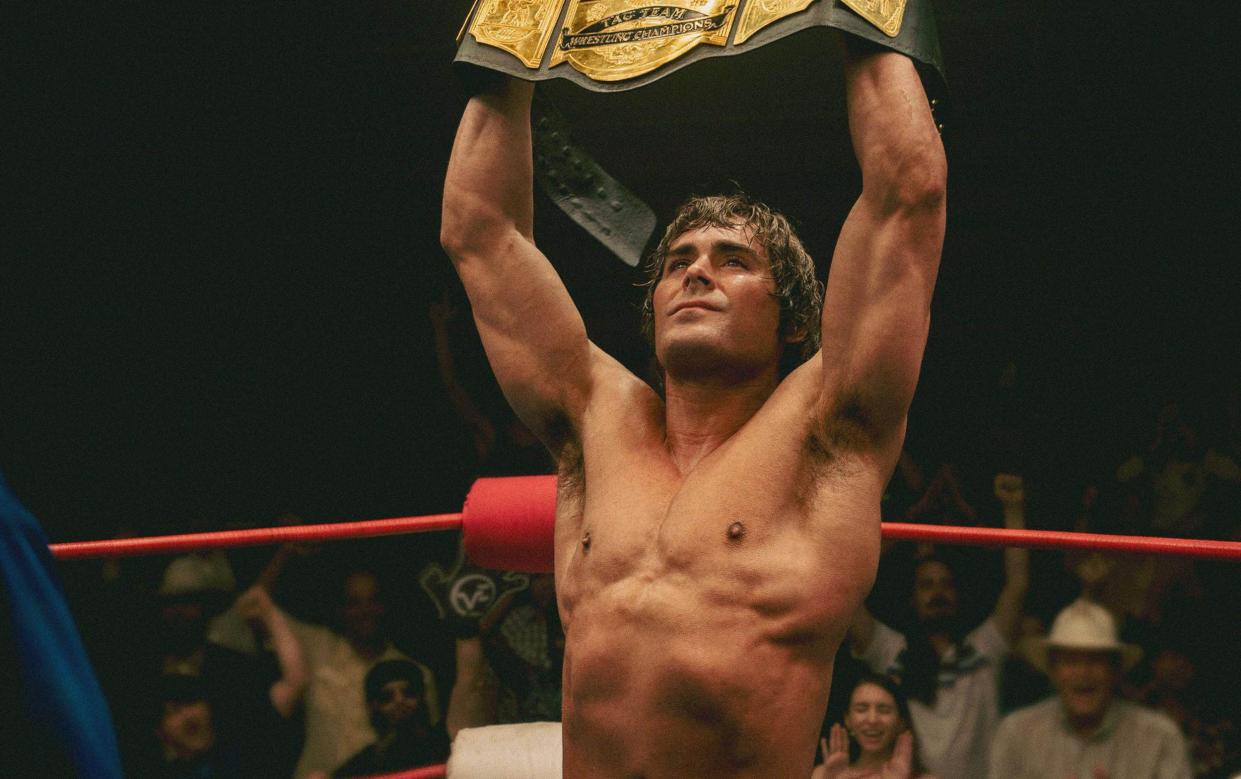The Iron Claw, review: Zac Efron’s tragic wrestling drama fails to pack a punch

- Oops!Something went wrong.Please try again later.
- Oops!Something went wrong.Please try again later.
In The Iron Claw, nothing within the wrestling ring hits anywhere near as hard as the traumas piling up outside it. This is a famously scripted sport, after all, and you can’t blame writer-director Sean Durkin’s bleak-as-midwinter true story for wanting to undercut that side of things. Compared with, say, the boxing action in Creed, the body-slams and gut punches in this saga, against and perpetrated by a muscled-up Zac Efron, have a glancing, not-for-real quality.
So you don’t need to care about pro wrestling, in theory, to buy into the serial tragedies that afflicted the Von Erich family, a Texan clan of six brothers – though Durkin’s script omits one – who were shunted into the arena by their relentless patriarch, Fritz (Holt McCallany). This three-time world champion was obsessed with foisting that legacy upon their shoulders, and did so with scant regard for his sons’ health or well-being: the first boy, Jack Jr, drowned in a puddle at six, but the others were all pushed one by one down the same career route, helplessly.
Efron is near-unrecognisable here – almost as broad as he is tall, and with thickened features that make as poignant an impression as his acting: it’s like he’s crying through a mask, at times. While he and The Bear’s intermittently amazing Jeremy Allen White, playing Kevin and Kerry, are the most believable as brothers, that’s not to say Harris Dickinson lets the side down – he’s just half a foot taller than they are, and still 5” shy of David Von Erich’s real-life height.
Durkin trained his chilly, Kubrickian detachment to good use on The Nest, but it’s curious that he carries over so much of that aesthetic here, without adjustments to make better sense of this story. The “Von Erich curse” is mentioned early on, and sits portentously alongside the taunting, campy theatrics that made wrestling notorious through the 1980s. It’s hard to get a bead on what the film is saying with such juxtapositions: there are as many blame-the-parents scenes (Maura Tierney’s emotionally unavailable mom is certainly at fault) as there are blame-the-culture-of-wrestling scenes or just blame-the-random-curse ones.
In a way, the director’s exclusion of the sixth brother – a suicide by gun shot, and not the only one – is indicative of the film’s uncertainty about what it wants the Von Erichs to mean to us. It places an artful premium on their cosmically cruel suffering, and can’t even house the unadorned facts inside a structure that works. “We’ll tell it, but with one fewer death” is an odd way to go about this tale – which ends up as a solid flexing exercise for its cast, but puts us through a family’s annihilation for no other reason it can ultimately decide upon.
132 min. In cinemas now

